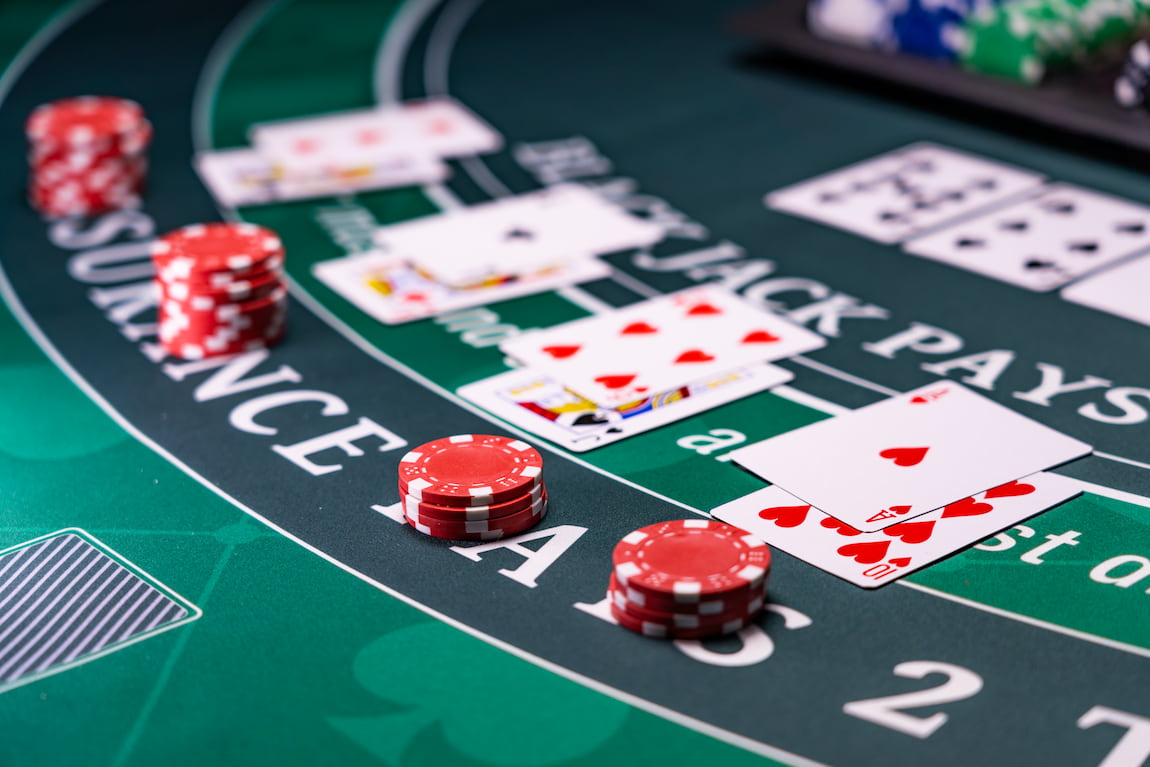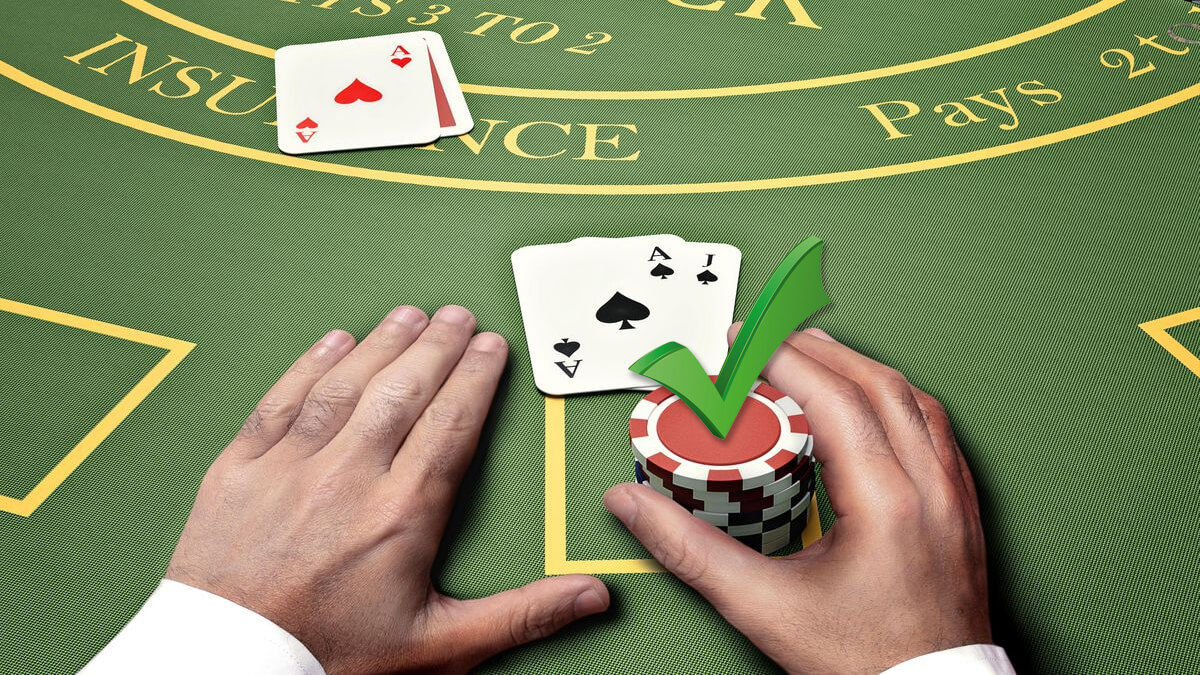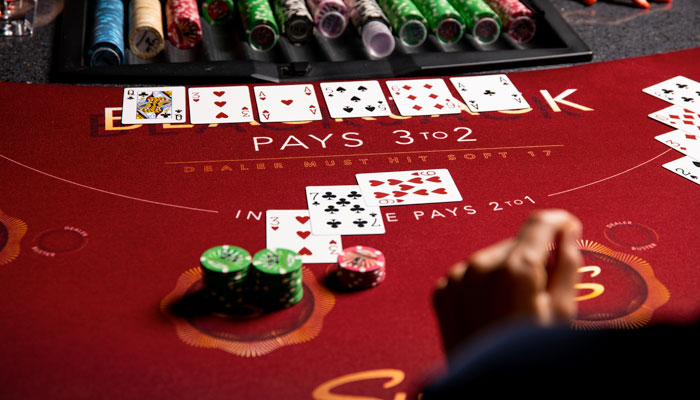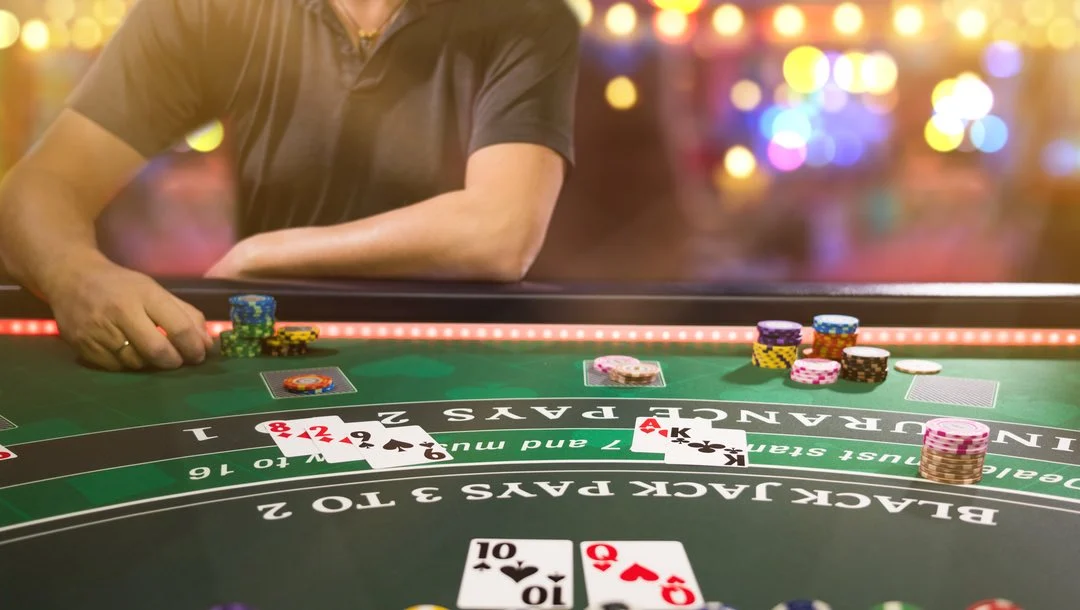Blackjack Guide | The blackjack insurance bet often bewilders players, leading them to make hasty decisions without grasping its true nature. In this article, we unveil the mysteries surrounding this enigmatic bet and offer sound advice on whether it’s a wise choice.

Blackjack Guide – What Exactly Is the Blackjack Insurance Bet?
The blackjack insurance bet comes into play after you’ve received your initial two cards, and the dealer’s up-card happens to be an Ace. At this juncture, the dealer presents players with the option to place an insurance bet before deciding on their hand’s course of action.
This insurance wager is an independent, optional side bet that hinges on whether players believe the dealer’s face-down card is a ten or a picture card, resulting in a blackjack. If their prediction holds true, they win the insurance bet. Conversely, if the dealer’s hole card is not a ten-value card, the insurance bet is lost.
<Blackjack – Taking you through when to double down on your bets!>
Wagering Amounts and Payouts

Casino rules permit players to wager an amount equivalent to half or less of their original hand wager when opting for insurance bets. For instance, if you wager $10 and the dealer reveals an Ace as their up-card, they’ll inquire if anyone wishes to place an insurance bet. To signify their choice, players can place a $5 chip in the designated insurance area.
When the dealer has a ten or a picture card as their hole card, resulting in a blackjack, the insurance bet pays out at 2 to 1 odds. In our example, the $5 insurance bet would yield a $10 win. Notably, if you hold a blackjack as well, it results in a push, meaning no net gain or loss, as your $10 insurance win offsets the $10 loss on your hand.
The Casino’s Motive Behind Offering Insurance Bets
Casinos introduced the insurance side bet in blackjack to create the illusion that players can “safeguard” their hand against a potential dealer blackjack. While this seems reasonable on the surface, there are critical aspects about this bet that the casino conveniently omits.
Contrary to the casino’s portrayal, the blackjack insurance bet merely revolves around wagering on the dealer’s hole card being a ten or a picture card. In essence, it offers no genuine protection. Thus, for strategic players who adhere to basic principles, the insurance bet is a futile endeavor.
The Calculated Risk of the Insurance Wager

Let’s delve into a straightforward mathematical analogy. Suppose you were given the opportunity to bet on a coin toss, with a win paying even money for a correct guess and a loss deducting your original wager for an incorrect guess. Would you participate?
Now, consider a variation of this game where, upon guessing correctly, you receive only 95 cents for every dollar wagered. Given these choices, which would you prefer? The key insight here is that a bet becomes unfavorable for a player when the payout odds are less than the actual odds of winning.
Applying this concept to blackjack insurance, we can examine the odds of a dealer having a ten or a picture card in the hole. Using a single deck and assuming a $1 insurance bet, the ratio of non-tens to tens in an unplayed deck stands at 35 to 16. Consequently, the house edge for the insurance bet is 5.9%.
Why Insuring a Strong Hand Is Ill-Advised
Some players contemplate taking insurance when holding a strong hand like 20, believing it shields them from potential losses against a dealer blackjack. However, this notion is fundamentally flawed.
When you possess a 20 comprised of two ten-value cards, you effectively remove two of the cards the dealer needs for a blackjack from play. Consequently, the ratio of non-tens to tens in the remaining deck becomes 35 to 14. This results in a staggering house edge of 14.5%, making it the worst time to consider an insurance bet.
Blackjack Guide – What If You Have a Blackjack Hand?

When you hold a blackjack hand and the dealer reveals an Ace as their up-card, they may offer you “even money.” This concept warrants further explanation, which we will explore in our next article, “Blackjack Even Money.”
In conclusion, regardless of the circumstances, blackjack insurance is an unfavorable choice for basic strategy players, as it yields a negative expected value. Over time, this bet leads to losses, and thus, it’s advisable to steer clear of it. However, there are rare instances when the insurance bet can be profitable, typically when the remaining decks are rich in ten-value cards, increasing the likelihood of the dealer having a ten in the hole.



